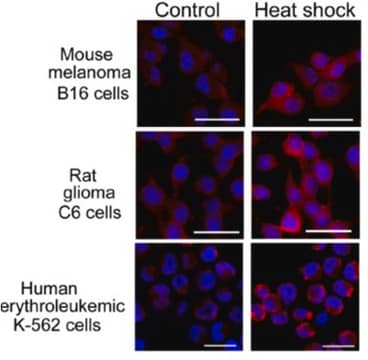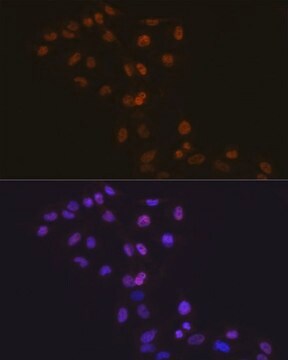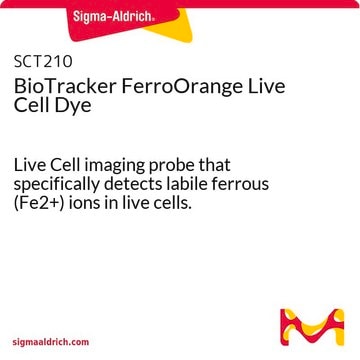MABS1917
Anti-RIP140 Antibody, clone 6D7
clone 6D7, from mouse
Sinonimo/i:
Nuclear receptor-interacting protein 1, Nuclear factor RIP140, Receptor-interacting protein 140
About This Item
Prodotti consigliati
Origine biologica
mouse
Livello qualitativo
Forma dell’anticorpo
purified immunoglobulin
Tipo di anticorpo
primary antibodies
Clone
6D7, monoclonal
Reattività contro le specie
human, mouse, rat
Confezionamento
antibody small pack of 25 μg
tecniche
ChIP: suitable
western blot: suitable
Isotipo
IgG1κ
N° accesso NCBI
N° accesso UniProt
Condizioni di spedizione
ambient
modifica post-traduzionali bersaglio
unmodified
Informazioni sul gene
human ... NRIP1(8204)
Descrizione generale
Specificità
Immunogeno
Applicazioni
Signaling
Chromatin Immunoprecipitation Analysis: A representative lot detected RIP140 in Chromatin Immunoprecitpiation applications (Hallberg, M., et. al. (2008). Mol Cell Biol. 28(22):6785-95).
Qualità
Western Blotting Analysis: 1 µg/mL of this antibody detected RIP140 in 10 µg of MCF7 cell lysate.
Descrizione del bersaglio
Stato fisico
Stoccaggio e stabilità
Altre note
Esclusione di responsabilità
Non trovi il prodotto giusto?
Prova il nostro Motore di ricerca dei prodotti.
Codice della classe di stoccaggio
12 - Non Combustible Liquids
Classe di pericolosità dell'acqua (WGK)
WGK 1
Punto d’infiammabilità (°F)
Not applicable
Punto d’infiammabilità (°C)
Not applicable
Certificati d'analisi (COA)
Cerca il Certificati d'analisi (COA) digitando il numero di lotto/batch corrispondente. I numeri di lotto o di batch sono stampati sull'etichetta dei prodotti dopo la parola ‘Lotto’ o ‘Batch’.
Possiedi già questo prodotto?
I documenti relativi ai prodotti acquistati recentemente sono disponibili nell’Archivio dei documenti.
Il team dei nostri ricercatori vanta grande esperienza in tutte le aree della ricerca quali Life Science, scienza dei materiali, sintesi chimica, cromatografia, discipline analitiche, ecc..
Contatta l'Assistenza Tecnica.







